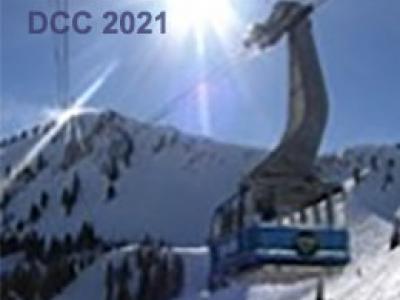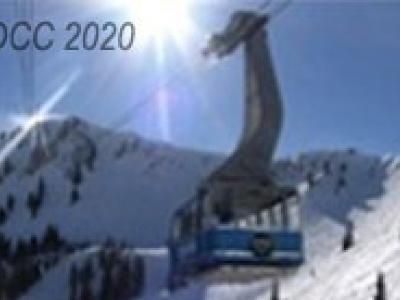
- Read more about On Random Editing in LZ-End
- 1 comment
- Log in to post comments
LZ-End is a variant of the LZ77 compression algorithm which allows random access to the compressed data. In this paper, we show how the random-access capability of LZ-End allows random edits to the compressed data, which is the first algorithm to randomly edit strings compressed by a Lempel-Ziv algorithm.
- Categories:
 77 Views
77 Views
- Read more about Approximating Optimal Bidirectional Macro Schemes.
- 1 comment
- Log in to post comments
Lempel-Ziv is an easy-to-compute member of a wide family of so-called macro schemes; it restricts pointers to go in one direction only. Optimal bidirectional macro schemes are NP-complete to find, but they may provide much better compression on highly repetitive sequences. We consider the problem of approximating optimal bidirectional macro schemes. We describe a simulated annealing algorithm that usually converges quickly. Moreover, in some cases, we obtain bidirectional macro schemes that are provably a 2-approximation of the optimal.
- Categories:
 120 Views
120 Views
- Read more about Grammar compression with probabilistic context-free grammar
- 2 comments
- Log in to post comments
We propose a new approach for universal lossless text compression, based on grammar compression. In the literature, a target string T has been compressed as a context-free grammar G in Chomsky normal form satisfying L(G) = T. Such a grammar is often called a straight-line program (SLP). In this work, we consider a probabilistic grammar G that generates T, but not necessarily as a unique element of L(G). In order to recover the original text T unambiguously, we keep both the grammar G and the derivation tree of T from the start symbol in G, in compressed form.
dcc_poster.pdf
- Categories:
 107 Views
107 Views
- Read more about Towards Better Compressed Representations
- Log in to post comments
We introduce the problem of computing a parsing where each phrase is of length at most m and which minimizes the zeroth order entropy of parsing. Based on the recent theoretical results we devise a heuristic for this problem. The solution has straightforward application in succinct text representations and gives practical improvements. Moreover the proposed heuristic yields structure which size can be bounded both by |S|H_{m-1}(S) and by |S|/m(H_0(S) + ... + H_{m-1}(S)),where H_{k}(S) is the k-th order empirical entropy of S.
poster_dcc.pdf
- Categories:
 39 Views
39 Views
- Read more about Edge minimization in de Bruijn graphs
- 1 comment
- Log in to post comments
This paper introduces the de Bruijn graph edge minimization problem, which is related to the compression of de Bruijn graphs: find the order-k de Bruijn graph with minimum edge count among all orders. We describe an efficient algorithm that solves this problem. Since the edge minimization problem is connected to the BWT compression technique called "tunneling", the paper also describes a way to minimize the length of a tunneled BWT in such a way that useful properties for sequence analysis are preserved.
- Categories:
 142 Views
142 Views
- Read more about Weighted Adaptive Huffman Coding
- 1 comment
- Log in to post comments
Huffman coding is known to be optimal in case the alphabet is known in advance, the set of codewords is fixed and each codeword consists of an integral number of bits. If one of these conditions is violated, optimality is not guaranteed.
In the {\it dynamic\/} variant of Huffman coding the encoder and decoder maintain identical copies of the model; at each position, the model consists of the frequencies of the elements processed so far.
- Categories:
 126 Views
126 Views